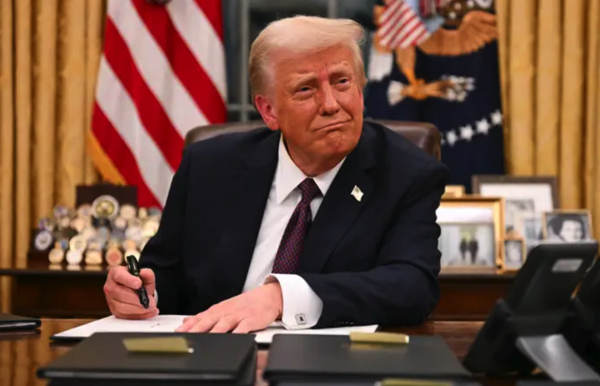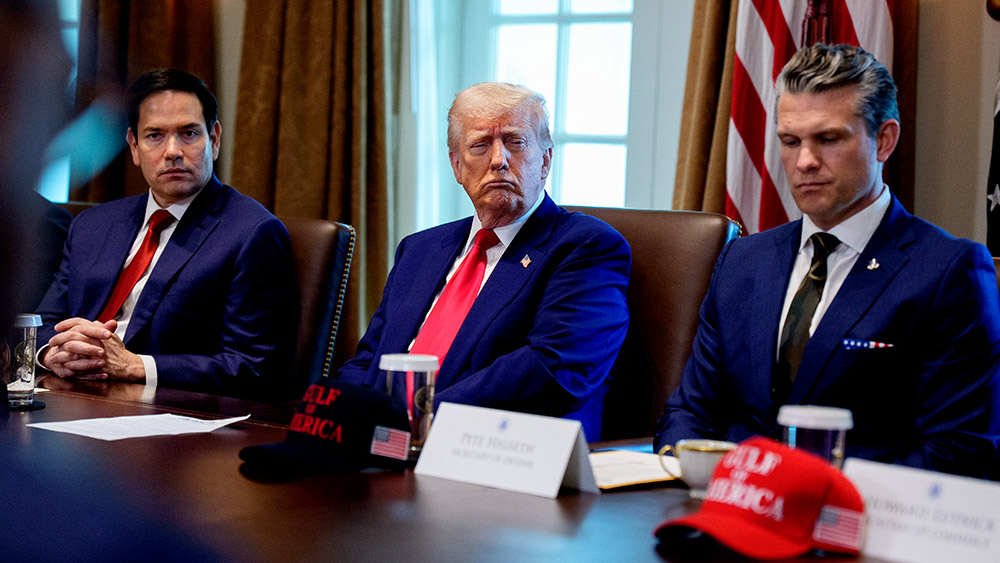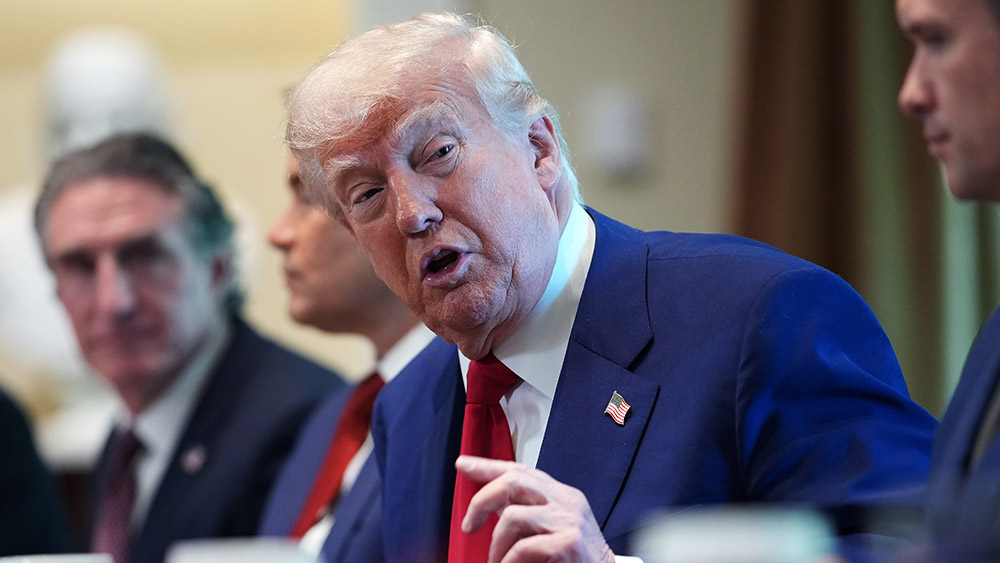 Parler
Parler Gab
Gab
- President Donald Trump announced measures to ease the economic strain on automakers by exempting certain foreign auto parts from double tariffs and reimbursing already paid duties, aiming to stabilize the industry.
- The policy seeks to reconcile Trump's protectionist agenda with the reality that automakers rely on global supply networks, offering temporary relief while pushing for long-term domestic production shifts.
- Automakers can claim tariff credits (3.75 percent of a vehicle's value in Year 1, tapering to zero) to offset costs, providing a phased adjustment period. The 25 percent tariff on fully imported vehicles remains intact.
- While U.S. automakers like Ford and GM welcomed the move, foreign manufacturers and Canadian leaders criticized it as insufficient, citing ongoing trade uncertainty and economic risks.
- The adjustment comes amid declining public approval of Trump’s trade policies and slowing GDP growth. Trump framed it as a tactical concession, not a retreat, emphasizing his commitment to reshoring manufacturing.
The high stakes of auto tariffs
Under the revised policy, automakers will receive credits to offset tariffs on imported parts, calculated as a percentage of the total value of U.S.-made vehicles. For the first year, companies can claim up to 3.75 percent of a car's value in tariff relief, dropping to 2.5 percent in the second year before being phased out entirely. The White House framed this as a temporary reprieve, giving manufacturers time to adjust supply chains without facing immediate financial ruin. Officials emphasized that the 25 percent tariff on fully imported vehicles remains unchanged, preserving Trump’s leverage in trade negotiations. Even Trump himself has framed the adjustment as a temporary concession rather than a retreat. "We just wanted to help them during this little transition," he told reporters before departing for Michigan. Automakers cautiously welcomed the move. Ford said it appreciated Trump's decision, which it said would "help mitigate the impact of tariffs on automakers, suppliers and consumers." General Motors also expressed gratitude, though it withdrew its annual financial forecast, citing lingering uncertainty. Foreign manufacturers, represented by Autos Drive America, called the adjustment a step in the right direction. However, they argued that more must be done to "turbocharge the U.S. auto industry." Meanwhile, Canadian business leaders criticized the plan as insufficient, warning that ongoing trade uncertainty would stifle investment. The tariff shift comes as Trump faces criticism over the economic fallout of his trade policies. A recent Reuters/Ipsos poll found only 36 percent of Americans approve of his economic stewardship, the lowest level of his presidency. Trump's tariff relief marks a strategic recalibration – acknowledging the economic pain inflicted on automakers while keeping pressure on companies to boost domestic production. Whether this move stabilizes the industry or merely delays further disruption remains to be seen. Watch as former Chrysler CEO Bob Nardelli lauds the Trump administration's move to exempt car parts from heavy tariffs in this Fox Business report. This video is from the TrendingNews channel on Brighteon.com.More related stories:
Trump administration announces phased auto tariff relief to reshape U.S. manufacturing amid political backlash. Trump's 25% auto tariffs shake industry, but Tesla stands strong. Market rebounds on Trump's tariff pause, but uncertainty looms. Sources include: SHTFPlan.com BBC.com Reuters.com Brighteon.comEU to ban privacy cryptocurrencies and anonymous accounts by 2027 under new AML rules
By Laura Harris // Share
Trump demands 30-day Ukraine ceasefire, threatens sanctions if fighting continues
By Cassie B. // Share
Trump and UK strike historic trade deal, setting stage for global tariff negotiations
By Cassie B. // Share
Trump proposes cutting China tariff to 80% ahead of high-stakes trade talks
By Cassie B. // Share
EU takes Trump to WTO over tariffs, targets U.S. goods with €95 billion countermeasures
By Cassie B. // Share
Governments continue to obscure COVID-19 vaccine data amid rising concerns over excess deaths
By patricklewis // Share
Tech giant Microsoft backs EXTINCTION with its support of carbon capture programs
By ramontomeydw // Share
Germany to resume arms exports to Israel despite repeated ceasefire violations
By isabelle // Share










